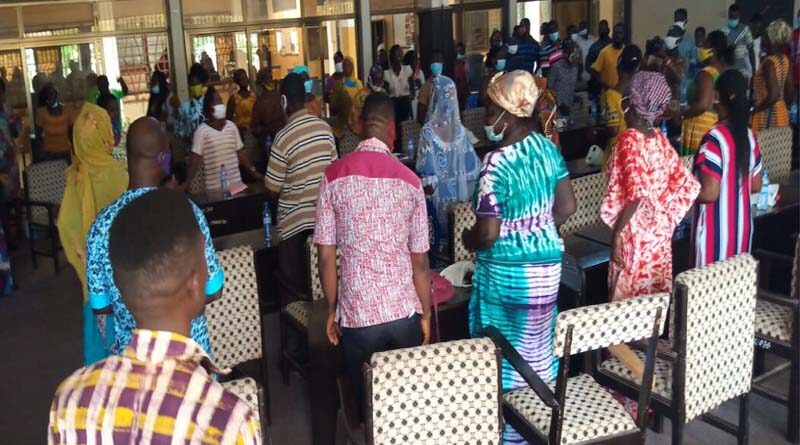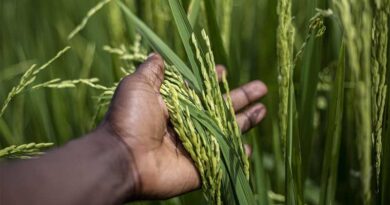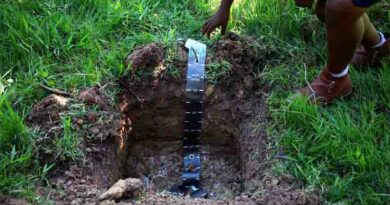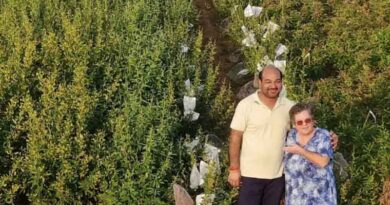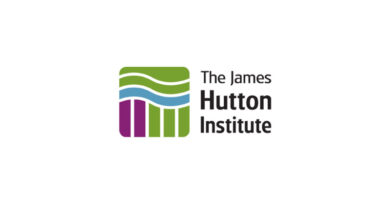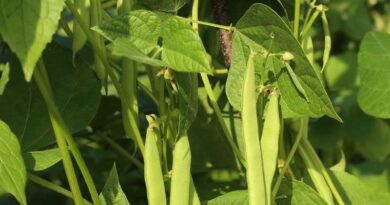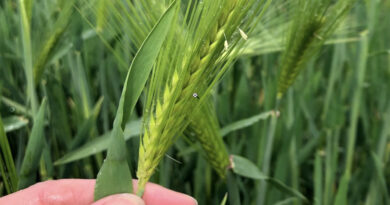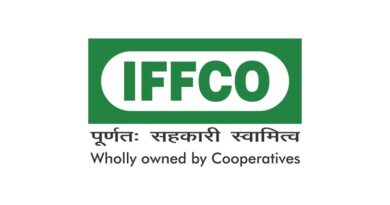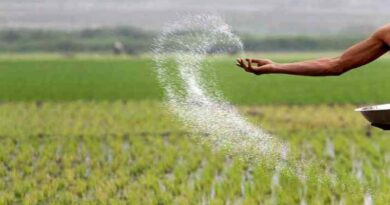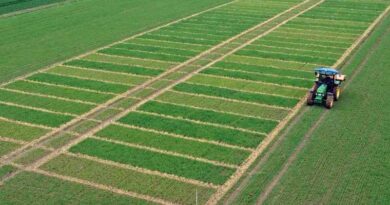Promoting Effective Soil Fertility Management in Smallholder Farming Communities in Ghana
04 January 2022, Africa: Smallholder farming communities face critical crop productivity and socio-economic constraints as a result of low and declining soil fertility. In Ghana’s predominately smallholder agricultural sector, it is apparent that plant nutrition and soil fertility management practices are not sustainable, and continue to be a major cause of both food and livelihood insecurity.
These issues are intensified in rain-fed systems that are especially vulnerable to the effects of climate-change related impacts that include less reliable and predictable rainfall. Farmers are experiencing greater spatial and temporal variability of precipitation, and more frequent extreme weather events such as drought or flooding. Therefore, farmers need more support on the how best to adapt to climate change, and they need a better understanding of the link between soil fertility and the diverse set of challenges that are faced daily.
Also Read: Shajapur Agri Input dealers complete training in pesticide management
The team leader, Kwame Agyei Frimpong (Seated) moderating interaction between the District Director for the Ministry of Food and Agriculture (MofA) and the participants from Komenda-Edina-Eguafo-Abirem (KEEA) District regarding their farming activities and soil fertility related challenges.
Participants at the Focus Group Forum listening and responding to questions raised by the field team regarding the 4R Nutrient Stewardship and the Integrated Soil Fertility Management.
Kwame Agyei Frimpong, Associate Professor in Soil Science and Soil Fertility at the University of Cape Coast, Ghana, is addressing these issues through an outreach program designed to serve as a platform to increase the knowledge and awareness of communities of smallholder farmers on soil fertility management and plant nutrition innovations. Prof. Frimpong’s proposal for this work was awarded the African Plant Nutrition Outreach Fellowship Award, an initiative of APNI, OCP Group, and the Mohammed VI Polytechnic University (UM6P), which was established to encourage innovation in education, training and communication programs relevant to improving the use and efficiency of plant nutrients in African agro-ecosystems.
“We intend to continue to generate evidence-based data and information about their perceptions, socio-economic orientations and indigenous knowledge, which will inform the design of fit-for-purpose soil fertility interventions and to serve as input into future research,” explains Prof. Frimpong.
Building Knowledge Exchange Platforms for Sustainable Crop Nutrition
The outreach program organized focus group discussions and personal interviews with key stakeholder including farmers, extension agents, and local leaders at both Elmina and Agona, Ghana. The discussion facilitated exchange on key interventions including the extension of Integrated Soil Fertility Management (ISFM) and the 4R Nutrients Stewardship (i.e., applying the right nutrient source at the right rate, right time, and right place).
“The interaction was aimed to elicit responses about how farmers’ perceptions and socio-economic orientation affects their soil fertility management practices as well as traditional soil fertility management practices that they use on their farms.”
The ISFM concept provides a locally adaptable strategy to enhance crop productivity while maximizing the agronomic efficiency of applied inputs, and starts farmers down the path to sustainable intensification.
By combining a proven set of concepts, principles and practices that lead to the efficient use of available organic and inorganic resources to maintain or improve soil fertility, we can improve sustainable crop production for household food and income security, and enhance local livelihoods.
The greatest benefits from ISFM are generated when a foundational set of best practices (i.e., appropriate germplasm, fertilizer and organic resources, and good agronomic practices) are combined. Examples of effective ISFM measures used in these projects include:
Intercropping that integrate legumes with staple food crops, such as maize and groundnuts, soybean, cowpea or pigeon pea to enhance soil fertility by biological fixation of atmospheric nitrogen.
Rotations systems that divide land into different plots and grow different crop species in a beneficial sequence.
Mineral fertilization used in combination with locally available organic nutrient resources such as livestock (poultry, cattle, etc) manures, compost, crop residues and woodland litter.
The 4R Nutrient Stewardship concept promotes best nutrient management practices (BNMPs) to achieve cropping system goals while minimizing nutrient loss and maximizing crop uptake. It is a globally recognized framework used to describe the implementation of locally scalable solutions to economically, environmentally, and socially sustainable crop nutrition. During the focus group session, valuable insights are gained on common perceptions about, and possible barriers to, effective use of inorganic fertilizer use within local soil fertility management strategies. Discussions centered around key 4R considerations for smallholders including:
Right Source – What is the best source to obtain balanced fertilization?
Right Rate – How much fertilizer do I need to apply on my farm?
Right Time – What is the optimum time to apply nutrients (rainy or dry season)?
Right Place – Where is the best place to put the nutrients?
“The sessions provided an effective co-learning model that was able to help smallholder farm communities identify a set of best practices that were realistically achievable in their fields, while also bettering extension staff’s understanding of the capacity for, and barriers against, sustained adoption of such practices,” explains Prof Frimpong.

